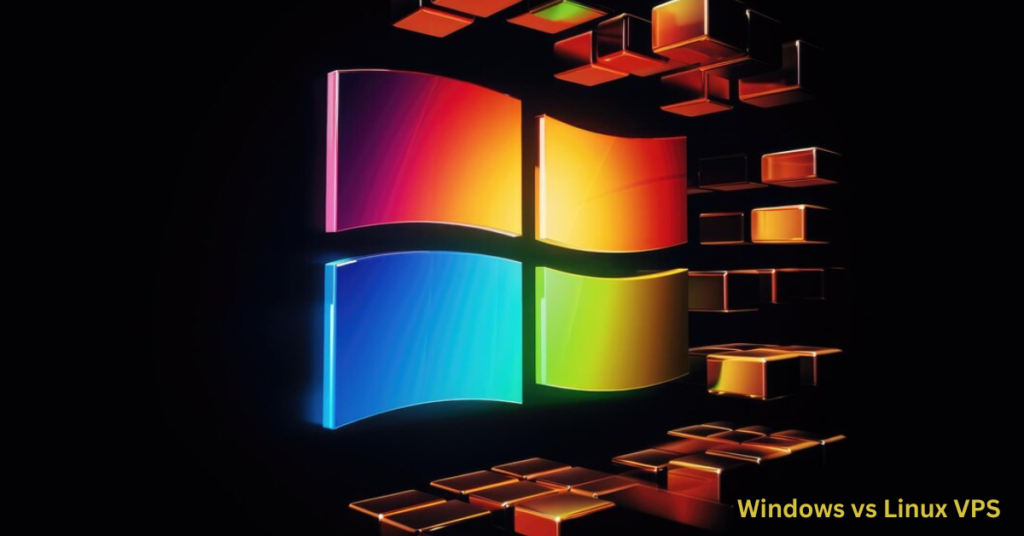Introduction to VPS and its Benefits:
Windows vs Linux VPS have revolutionized the way businesses manage their online presence. Gone are the days when you had to rely solely on shared hosting services, which often left your website vulnerable and slow. VPS offers a perfect blend of power, flexibility, and control, allowing you to customize your server environment to meet your needs.
But when it comes time to choose a platform for your VPS—Windows or Linux—the decision can feel overwhelming. Each option presents unique advantages and challenges that could affect how smoothly your business operates online. Understanding these differences is crucial whether you’re launching an e-commerce site or running complex applications. Let’s dive into the Windows vs Linux VPS world and discover which aligns best with your business objectives!
Understanding the Differences between Windows vs Linux VPS:
The core difference between Windows vs Linux VPS lies in their operating systems. Windows VPS runs on Microsoft’s platform, while Linux VPS is built on various open-source distributions like Ubuntu or CentOS.
Windows VPS offers a familiar interface for users accustomed to Microsoft products. It supports a range of applications, particularly those developed in.
NET framework. This makes it ideal for businesses that rely heavily on proprietary software.
Conversely, Linux VPS tends to be favored by developers and tech-savvy users. Its flexibility allows for customization and optimization according to specific needs. Additionally, it’s often more cost-effective due to licensing fees associated with Windows.
Security protocols also differ significantly between the two platforms. While both can be secure when appropriately configured, Linux generally has fewer vulnerabilities out of the box due to its open-source nature and active community support.
Pros and Cons of Linux VPS:
Linux VPS offers a host of advantages that appeal to many users. Its open-source nature allows for customization and flexibility, making it ideal for developers and tech-savvy individuals. The cost-effectiveness is another significant benefit; Linux distributions are typically free or low-cost, which can lead to lower hosting fees.
On the downside, the learning curve can be steep for those unfamiliar with Linux environments. Users may need technical expertise to manage their servers effectively.
Another consideration is software compatibility. While many applications run seamlessly on Linux, some proprietary software might be restricted or require workarounds.
While community support is robust, official customer service options may not be as comprehensive as those on other platforms. This could pose challenges when immediate assistance is needed during critical situations.
Factors to Consider When Choosing Between Windows vs Linux VPS:
When deciding between a Windows and Linux VPS, consider your existing software requirements. If you’re running applications optimized for Windows, a Windows VPS might be the better choice.
Cost is another critical factor. Due to its open-source nature, Linux hosting tends to be more budget-friendly.
Evaluate your team’s expertise as well. A team familiar with Microsoft technologies will adapt quickly to a Windows environment, while those skilled in coding may prefer the flexibility of Linux.
Performance needs can’t be overlooked, either. Linux often has lower resource consumption than its counterpart, which can translate into faster response times for web applications.
Think about the support options that are available from hosting providers. Some offer extensive resources for one platform over the other, significantly influencing your final decision.
Which Platform is Best for Your Business?
Choosing the right platform hinges on your specific business needs. If your applications are tied to Microsoft technologies, Windows VPS may be a natural fit. It seamlessly supports.
NET frameworks and SQL Server, offering familiarity for teams used to those environments.
Conversely, if you prioritize flexibility and open-source solutions, Linux VPS shines brightly. It’s highly customizable and boasts a robust ecosystem of tools that cater to developers’ needs.
Consider your technical expertise, too. A team well-versed in Linux might thrive with its command-line interface. Conversely, a more GUI-oriented experience could make Windows an easier choice for less tech-savvy personnel.
Cost is another crucial factor. Linux hosting is typically more affordable than Windows due to licensing fees associated with Microsoft products.
Assessing these factors will guide you toward the platform that aligns best with your operational goals and technical capabilities.
Conclusion:
When deciding between Windows and Linux VPS, it’s essential to weigh your business needs carefully. Each platform has distinct advantages and drawbacks that cater to different user requirements.
Windows VPS is often favored for its familiarity and ease of use, particularly among businesses already invested in Microsoft products. Its robust support for various applications can streamline workflows but may incur higher costs.
On the other hand, Linux VPS shines in terms of cost-effectiveness and flexibility. It supports various programming languages and software applications while providing superior performance for tech-savvy users who don’t mind a steeper learning curve.
Your choice should align with your specific objectives, technical expertise, budget constraints, and long-term goals. Whether you opt for Windows or Linux could significantly impact your operations. Analyzing both options thoroughly will empower you to make an informed decision that sets the foundation for success in your digital endeavors.
FAQs:
What is a VPS?
A Virtual Private Server (VPS) is a virtualized server that acts as a dedicated machine within a shared hosting environment. It provides businesses with increased control, flexibility, and performance compared to shared hosting, allowing you to install custom software and configure your server environment.
What is the difference between Windows VPS and Linux VPS?
The main difference lies in the operating system. Windows VPS runs on Microsoft’s platform, offering a familiar interface and strong compatibility with Microsoft technologies like .NET and SQL Server. In contrast, Linux VPS is built on open-source distributions like Ubuntu and CentOS, offering more flexibility, customization, and cost-effective hosting.
Which VPS is better for businesses using Microsoft technologies?
A Windows VPS is the ideal choice for businesses relying heavily on Microsoft products and technologies (like .NET or SQL Server). It provides seamless integration with these applications and is easier for teams familiar with Microsoft environments.







